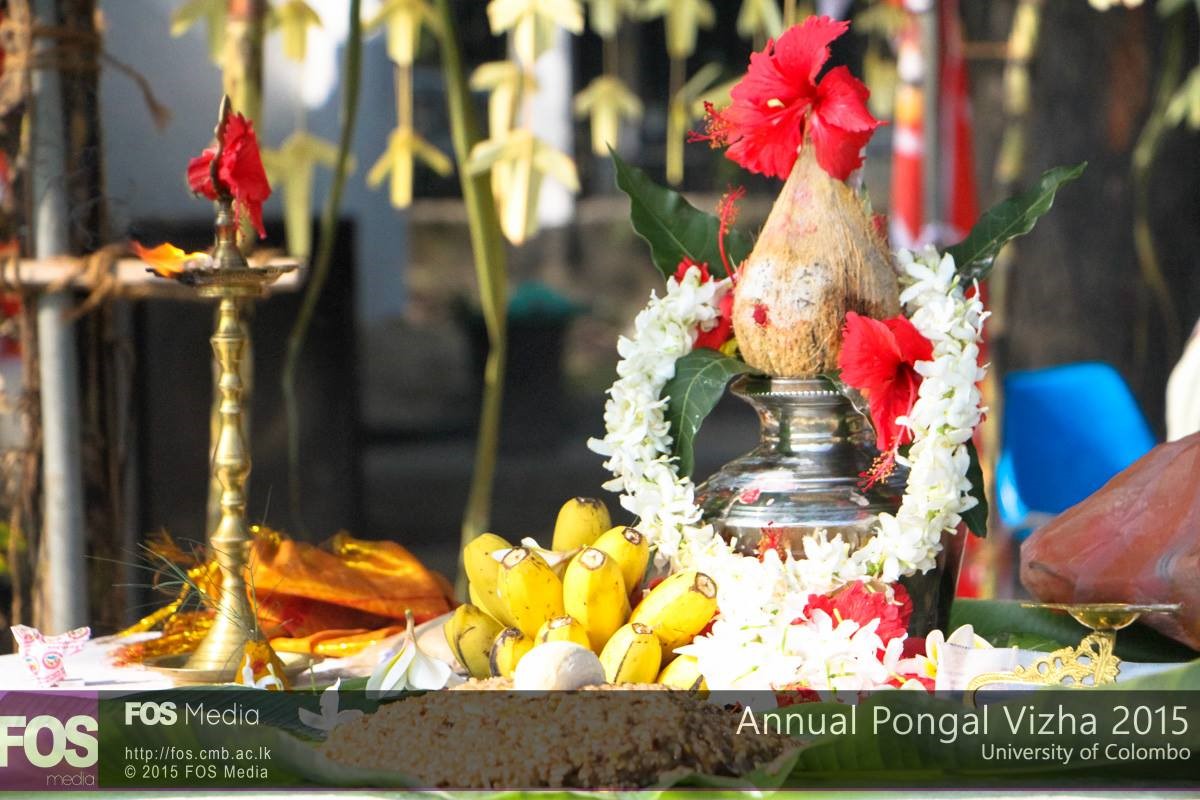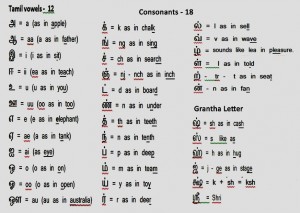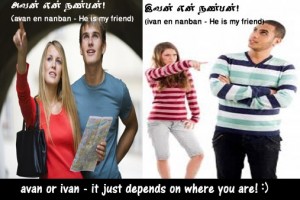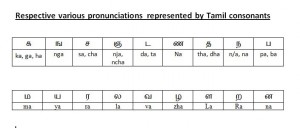வணக்கம், சுகமா? 🙂
(vaNakkam, Sukamaa? – Greetings, are you fine? 🙂
We studied different Tamil vernaculars and the numbering system in Tamil in our last lesson, இல்லையா? 🙂 (illaiyaa – isn’t it? :p )
In this lesson, we are going to study the basics of Tamil grammar. Feel free to seek help if you find this somewhat difficult! 🙂
Before starting with verbs, we should know something about Tamil pronouns. These are some of the English pronouns – I, we, you, it, he, she, and they. Right? 🙂
But, in the case of Tamil, it is a little different. First person singular – plurals and second person singular – plurals have no problems! It is similar to English!
| First person | Second person | |
| Singular | I = நான் – Naan | You = நீ – ni |
| Plural | We = நாங்கள் (NaangkaL) or நாம் (Naam) | You = நீங்கள் – niingkaL |
Then, what about third person singular and plurals?
In English, we say “he went here” and “he went there”. No confusion about distance – whether it is here or there, “He” is always “He”! 🙂
But, Tamil distinguishes “he” in two forms – if he is close to you, “He” = இவன் (ivan) and if he is away from you, “He” = அவன் (avan)!
Similarly, “She”, “They”, and “It” also have two variations. We can summarize it in the table given below:
| Pronoun | If close to you | If away from you |
| He | இவன் (Ivan) | அவன் (avan) |
| She | இவள் (ivaL) | அவள் (avaL) |
| They (uyarthiNai) | இவர்கள் (ivarkaL) | அவர்கள் (avarkaL) |
| It | இது (ithu) remember ,this resembles “this” |
அது (athu) remember, this resembles “that” |
| They (ahriNai) | இவை (ivai) can be compared with “these” |
அவை (avai) can be compared with “those” |
Now, I can imagine the confusion on your face – “What does uyarthiNai and ahriNai means?” o.O
The Tamil language divides all creatures into two groups – உயர்திணை (uyarthiNai) and அஃறிணை (ahriNai)
உயர்திணை literally (high caste) humans are known as uyarthiNai. Supernatural living beings like gods, demons are also considered as uyarthiNai.
Eg: ஆசிரியர் (aasiriyar – teacher), தாய் (thaay – Mom) தந்தை (thanthai – dad), சிறுவன் (Siruvan – Boy)
அஃறிணை (litt. other than high caste) = dead, non-viable and all living beings except humans are known as ahrinai.
Eg: மாடு (maadu – Cow), காகம் (kaakam – Crow), புத்தகம் (Puththakam – Book), வீடு (viidu – Home)
The third person plural அவர்கள்/ இவர்கள் is usually referred to uyarthiNai in Tamil while இவை/அவை referred to ahrinai.
Now, here’s a small exercise for you! Tell me whether the given nouns are ahriNai or uyarthiNai.
- விஞ்ஞானி (vinjnjaani – scientist)
- மேசை (meesai – table)
- விரிவுரையாளர் (virivuraiyaaLar – lecturer)
- கணினி (kaNini – computer)
- மாமரம் (maamaram – mango tree)
See below for answers and if your answer is uyarthiNai it will be mentioned as அவர்கள்/இவர்கள் and if it is ahriNai it will be mentioned as அவை/இவை.
|
Summary of today’s lesson: – Tamil differs in mentioning second person and third person singular and plural depending on its distance from us!! – Tamil Grammar divides all creatures into two groups – uyarthiNai and ahriNai. – Third person plural differs in Tamil depending on their “caste” |
| Today’s Fact:There are 5 epics written in Tamil and they are praised as “ஐம்பெரும் காப்பியங்கள்” (aimperum kaappiyangkaL – five great epics). The interesting thing is that every epic possesses an ornament in its name and Tamil poets praise that the “Lady of Tamil” wears those 5 epics in her body as ornaments! They are:
சிலப்பதிகாரம் (silappathikaaram – silampu means anklet) மணிமேகலை (maNimaekalai – golden hip belt) சீவக சிந்தாமணி (siivaka sinthaamani – sinthaamani means gem of crown) வளையாபதி (vaLaiyaapathi – vaLaiyal = bangles) குண்டலகேசி (kuNdalakaesi – kuNdalam = earrings)
It doesn’t end here!
|
Answers:
uyarthiNai, ahriNai, uyarthiNai, ahriNai, ahriNai.
Ok, let’s meet next time!!
போய்ற்று வாறன்! 🙂 (poittru vaaRan – see you later!!)




